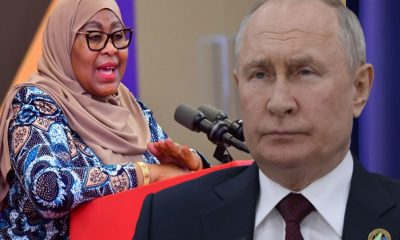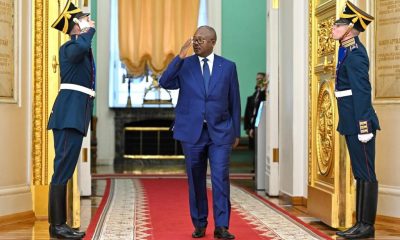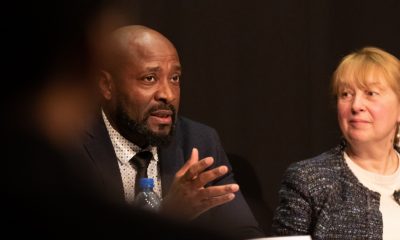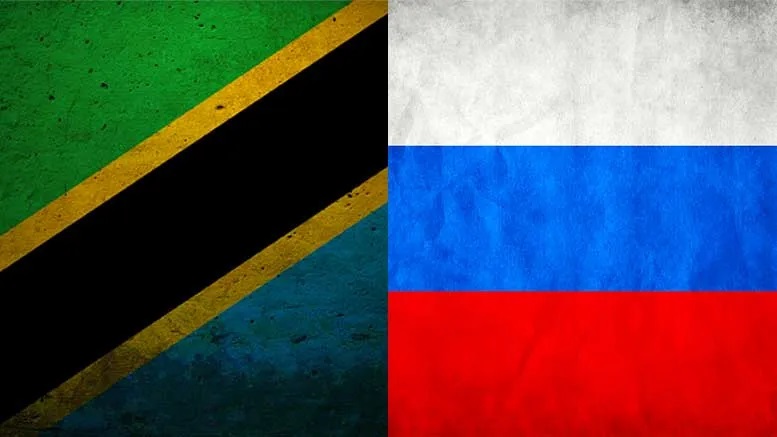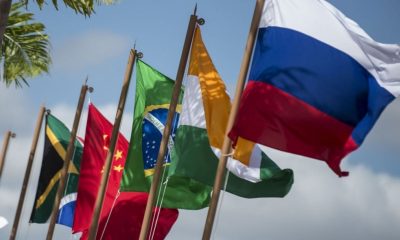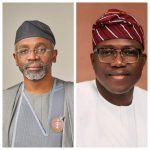World
Russia’s Cultural Diplomacy in Multipolar World: Perspectives and Challenges for Africa
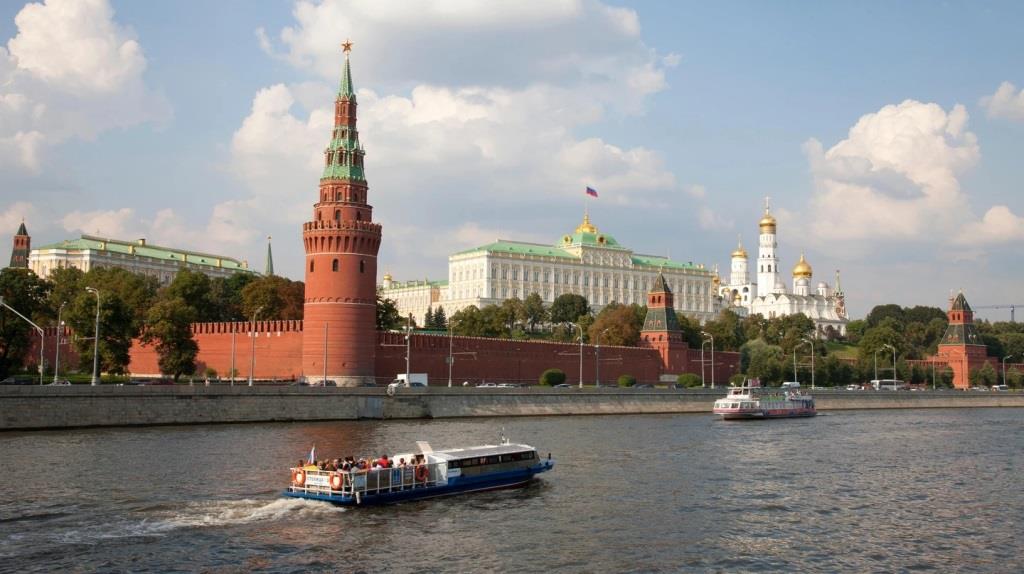
By Kestér Kenn Klomegâh
After careful research to find the meaning and implications of the term “multipolar world” often used these days, the free dictionary and englopedia offer insights as a system of world order in which the majority of leading global powers coordinate and commonly agree on economic, political and cultural influence and acceptable directions.
Both dictionaries further explain that countries have multipolar approaches to foreign policy. Participating countries necessarily conceive multiple centres of power or influence in the world and have a multipolar approach to foreign policy. A multipolar world could mean various differences in thoughts, views and ideas regarding anything in particular that different people desire to do across the world.
It appears from several reports that China and Russia intend to lead the new world order. Speeches from both sides are extremely critical of “based rules and regulations” given by the United States and Europe. The United States’ global dictatorship might end so that the unipolar would then become a multi-polar world, in which democracy could actually thrive.
In practical terms and in order to lead a multipolar system requires an outward, broad and integrative approach. While China, to a large extent, has portrayed this practical approach which is readily seen around the world, Russia’s method is full of slogans and highly limited. With the emerging new global order, China appears more open and integrative than Russia. Despite the fact that it madly advocates for creating and ultimate establishment of this multipolar world, Russia exits significantly from the global stage, thus isolating itself and further contributing towards its own “cancel culture” instead of the opposite.
Whether people like it or not, the United States will conveniently operate within the emerging multipolar system. It has the instruments to operate within the framework of multilateralism and an integrative multicultural environment. The United States is and remains an “indispensable” power. Russia and a few of its allies in this evolutionary process, without adopting cautious steps and strategic approach, will definitely remain “dispensable” in the end.
In order to deepen our understanding of the emerging multipolar world, it is useful to make comparisons. The United States’ new strategy acknowledges that Africa will shape the future – not just the future of the African people but of the world. And as such deals with civil society, women and the youth, which it refers to as the megaphone of governance. These have an influence on policies and processes engaging policy-makers.
It further works in various directions closely with the African Union, and one more new direction is the African diaspora. The United States has the largest African diaspora with social inroads and business inter-linkages and a hugely significant impact on developments inside Africa. In contrast, Russia has grossly ignored the African diaspora and even those African professional specialists it has indeed trained from Soviet times to and currently. In the emerging new multipolar world, to overlook these would be a sad mistake from a policy perspective.
Russians seriously brush aside the relevance and the role of culture, for that matter, soft power in foreign policy while advocating for this emerging new order. Examining, in broad terms, all aspects of culture that basically includes continuing the struggle for self-determination, for creating the grounded opportunity to live in peace and preserving one’s valuable traditions. Language, of course, plays its unifying role.
Some contradictions and different interpretations might exist. On the other hand, there are divergent views and different perceptions relating to the current geopolitical changes, but frankly speaking, the study of foreign languages, including English, Spanish, Portuguese, Arabic, and the emerging interest in the Chinese and Russian languages, has been a long part of people’s lives, especially those who hope to move across borders and dream to have smooth interactions with other nationals from different countries around the world.
For the past three decades since the collapse of the Soviet era, Russian language studies have been low, for example, among the African population, primarily due to a lack of overwhelming interest and adequate motivation, and a lack of consistent interactive cultural activities by Russian authorities, experts at the Africa Studies Institute frequently say, and warmheartedly admit that things have slow with Russia’s return to Africa.
Most Africans prefer to study foreign languages to ensure smooth participation in interstate activities such as trade and in order to maintain relationships with people abroad. Foreign countries, for example, Britain, the United States, European countries and now China, are their traditional favourites. There are always interactive programmes and cultural activities throughout the year operated by foreign missions and NGOs.
Interpreted from different perspectives, Russia has not been a major economic giant in Africa compared to Western and European countries and China. Due to this historical truth, Africans have little interest in studying the Russian language and its culture. The Russian language itself does not sound attractive in terms of its economic opportunity, and therefore, Africans prefer to study languages that readily offer opportunities. China is making huge contributions to the continent, and this has made Africans see the need to understand the language in order to have better interaction with them.
The obvious worst-case scenario is that the Russian government has not created the necessary conditions and reasons to study the language simply because it has little influence in the continent. Besides that, the trade and commercial links between Russia and Africa are quite negligible, so there is no desperate demand for the Russian language for businessmen. Admittedly, Russia is not a welcoming holiday destination for African elites and the middle class, which is twice the total population of Russia and constitutes 40% of the 1.3 billion population of Africa. Travel and tourism is an increasingly huge business, and the unique geographical landscapes and changing attractiveness of Moscow, St Petersburg and Sochi – are unknown to the African elite and the growing middle class.
With the current evolving political and cultural processes, the West and Europe will still have a strong classical grip on Africa, influencing everything first from culture and tourism and moving onward to politics and economics. Perhaps, Russia has to play the correct strategic openness and welcome African travellers, tourists and visitors. Closing doors in these critical times might negatively distract Africa’s support for Russia.
The worrying tendency is that Rossotrudnichestvo, an agency under the Ministry of Foreign Affairs of the Russian Federation, pays little attention to educational and cultural questions in Africa, compared to its assertive counterparts – USAID, Alliance Française de France, The Goethe Institute, British Council, Instituto Cervantes that operate throughout the world.
Another Russian organization – Russkiy Mir Foundation, which is directly responsible for promoting the Russian language and culture abroad, does extremely little in sub-Saharan Africa. In addition, cultural officers work in all 38 Russian embassies in Africa.
Russia appears quite removed from Africa’s development issues, it is only mentioned in limited areas like weapons and military equipment supplies to French-speaking West Africa. Nowadays, China is being viewed as a strong strategic partner in Africa, given its (China’s) strong footprints in diverse economic sectors. China has more than 20 Confucius Centers and a party school in Africa. Western and European, and China support civil society, youth programmes and women’s issues – these are completely not on Russia’s radar.
Russia allegedly allows its own ‘cancel culture’ and significantly not by the United States and its European allies. In practical terms, creating a multipolar system deals largely with cultural and social orientation, it deals with public perceptions through openness and friendliness. At this new historical reawakening stage, Russia has reviewed itself and tried to focus on building relations, both with substance, trustful and refined approach and strategically engaging with civil society, youth organizations and non-state institutions in Africa.
By and large, Russia has to intensify its people-to-people connections, soft power and cultural diplomacy with Africa. There is a huge cultural gap in new thinking, working with young professionals and associations to promote people-to-people diplomacy through business links, cultural exchanges and competitions. As Russia charts loudly for the multipolar system, this has to reflect in its current foreign policy and approach, especially towards the developing world, in Latin America, Asia and Africa.
Late October, during the final plenary session of the 19th meeting of the Valdai Discussion Club, the focus was on matters related to the changing geopolitics and civilisation diversity, the new world order and its future developments. Under the theme, A Post-Hegemonic World: Justice and Security for Everyone, the four-day-long interactive meeting brought academic experts and researchers, politicians, diplomats and economists from Russia and 40 foreign countries.
President Vladimir Putin discussed, at considerable length, so many controversial questions. According to him, classic liberal ideology itself today has changed beyond recognition. They predicted the end of the United States’ global dominance but fell short in proposing an appropriate Russian template – the principles and mechanisms – for realizing the lofty idea and approach to establishing a multipolar world.
Putin did not say anything about Russia becoming a power but awarded that position to China. Giants like China, India and Indonesia with large populations are showing economic growth; in Africa, large countries – some of them with a population of 200 million – are emerging and making progress, as well as countries in Latin America.
According to him, Russia still has friends around the world. He mentioned that in Central America and Africa, Russian flags are flying everywhere. “There are flags in European countries and in the United States too; we have many supporters there. By the way, a large proportion of the US population adheres to traditional values, and they are with us, we know this,” he added in his assertive conversation at the Valdai gathering.
Putin, along the line, argued that the support for multipolar order largely exists in the global south. Russia is not the enemy and has never had any evil intentions as regards the European countries and the United States. He appreciated Africa’s struggle for independence and against colonialism. These absolutely unique relations were forged during the years when the Soviet Union and Russia supported African countries in their fight for freedom.
In this context and in relation to Africa, Natalia Zaiser, Founder of the African Business Initiative Union, apparently talked about the new historical stage need to establish new or different institutions of international partnership.
Her series of questions to Putin: “Mr President, what is your vision of a new international partnership institution? Which basis of parities is Russia ready to offer at the international level? Which mechanisms, tools and personalities are needed to acquire new allies, partners and friends, not at a declarative level but at the level of unquestionable responsibility in terms of agreements? Do you think we should also change or build up other approaches within the future international partnership?”
Putin’s answer was: “We must, and we can focus on cooperation, primarily, with countries which have sovereignty in taking fundamental decisions. This is my first point. My second point is that we need to reach a consensus on each of these decisions. Third, we need to secure a balance of interests. Part of which institutions can we do this? Of course, these are primarily universal international organizations, and number one is with the United Nations.”
World
Comviva Wins at IBSi Global FinTech Innovation Award
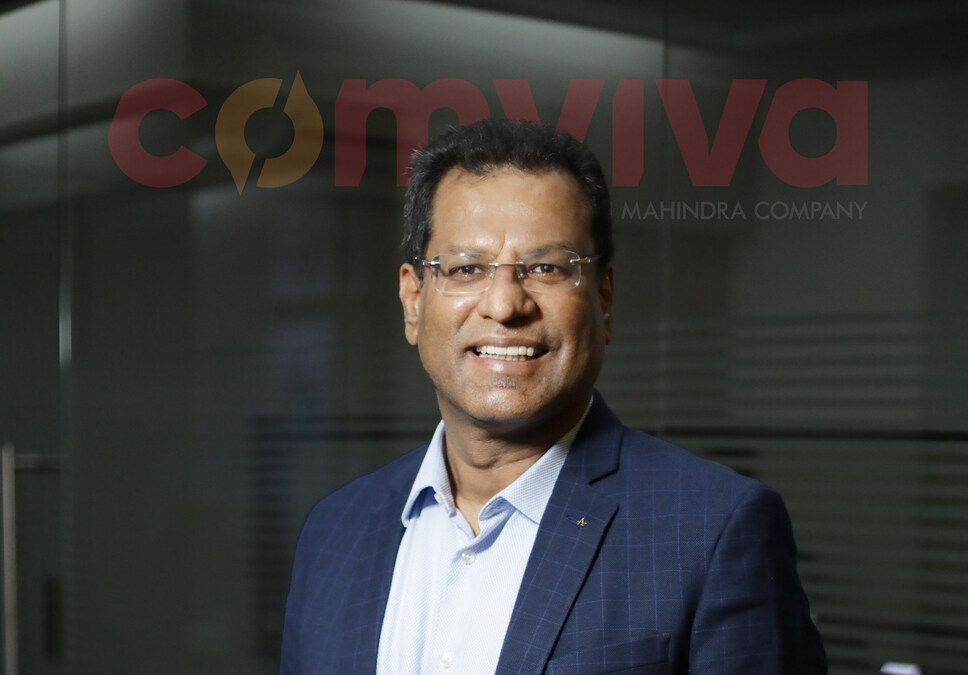
By Modupe Gbadeyanka
For transforming cross-border payments through its deployment with Global Money Exchange, Comviva has been named Best In-Class Cross Border Payments.
The global leader in digital transformation solutions clinched this latest accolade at the IBS Intelligence Global FinTech Innovation Award 2025.
The recognition highlights how Comviva’s mobiquity Pay is helping shape a modern cross-border payment ecosystem that stretches far beyond conventional remittance services.
Deployed as a white label Wallet Platform and launched as Global Pay Oman App, it fulfils GMEC’s dual vision—positioning itself as an innovative payment service provider while digitally extending its core money transfer business.
The solution allows GMEC to offer international money transfers alongside seamless forex ordering and other services. These capabilities sit alongside a broad suite of everyday financial services, including bill and utility payments, merchant transactions, education-related payments, and other digital conveniences — all delivered through one unified experience.
“This award is a testament to Oman’s accelerating digital transformation and our commitment to reshaping how cross-border payments serve people and businesses across the Sultanate.
“By partnering with Comviva and bringing the Global Pay Oman Super App, we have moved beyond traditional remittance services to create a truly inclusive and future-ready financial ecosystem.
“This innovation is not only enhancing convenience and transparency for our customers but is also supporting Oman’s broader vision of building a digitally empowered economy,” the Managing Director at Global Money Exchange, Subromoniyan K.S, said.
Also commenting, the chief executive of Comviva, Mr Rajesh Chandiramani, said, “Cross-border payments are becoming a daily necessity, not a niche service, particularly for migrant and trade-linked economies.
“This recognition from IBS Intelligence validates our focus on building payment platforms that combine global reach with local relevance, operational resilience and a strong user experience. The deployment with Global Money Exchange Co. demonstrates how mobiquity® Pay enables financial institutions to move beyond remittances and deliver integrated digital services at scale.”
“The deployment of mobiquity Pay for GMEC showcases how scalable, API-driven digital wallet platforms can transform cross-border payments into seamless, value-rich experiences.
“By integrating remittances, bill payments, forex services, and AI-powered engagement into a unified Super App, Comviva has reimagined customer journeys and operational agility.
“This Best-in-Class Cross-border Payments award win stands as a testament to Comviva’s excellence in enabling financial institutions to compete and grow in a digitally convergent world,” the Director for Research and Digital Properties at IBS Intelligence, Nikhil Gokhale, said.
World
Russia Renews Africa’s Strategic Action Plan
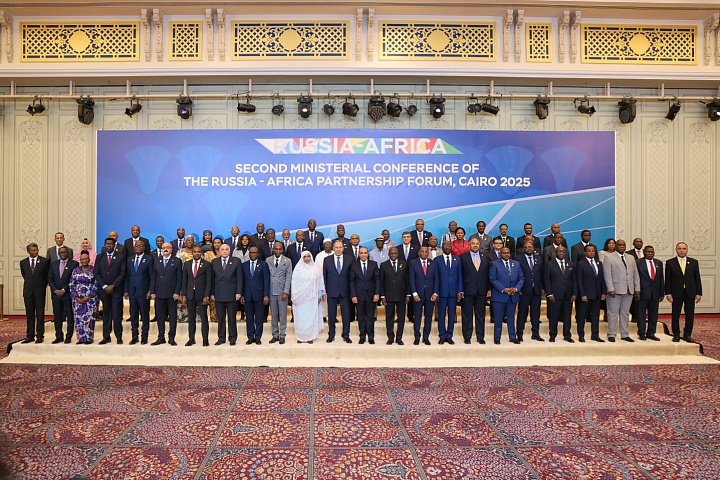
By Kestér Kenn Klomegâh
At the end of an extensive consultation with African foreign ministers, Russian Foreign Minister, Sergey Lavrov, has emphasized that Moscow would advance its economic engagement across Africa, admittedly outlining obstacles delaying the prompt implementation of several initiatives set forth in Strategic Action Plan (2023-2026) approved in St. Petersburg during the Russia-Africa Summit.
The second Ministerial Conference, by the Russian Foreign Ministry with support from Roscongress Foundation and the Arab Republic of Egypt, marked an important milestone towards raising bilateral investment and economic cooperation.
In Cairo, the capital city of the Arab Republic of Egypt, Lavrov read out the final resolution script, in a full-packed conference hall, and voiced strong confidence that Moscow would achieve its strategic economic goals with Africa, with support from the African Union (AU) and other Regional Economic blocs in the subsequent years. Despite the complexities posed by the Russia-Ukraine crisis, combined with geopolitical conditions inside the African continent, Moscow however reiterated its position to take serious steps in finding pragmatic prospects for mutual cooperation and improve multifaceted relations with Africa, distinctively in the different sectors: in trade, economic and investment spheres, education and culture, humanitarian and other promising areas.
The main event was the plenary session co-chaired by Russian Foreign Minister Sergey Lavrov and Egyptian Minister of Foreign Affairs, Emigration, and Egyptians Abroad Bashar Abdelathi. Welcome messages from Russian President Vladimir Putin and Egyptian President Abdelhak Sisi were read.
And broadly, the meeting participants compared notes on the most pressing issues on the international and Russian-African agendas, with a focus on the full implementation of the Russia-Africa Partnership Forum Action Plan for 2023-2026, approved at the second Russia-Africa Summit in St. Petersburg in 2023.
In addition, on the sidelines of the conference, Lavrov held talks with his African counterparts, and a number of bilateral documents were signed. A thematic event was held with the participation of Russian and African relevant agencies and organizations, aimed at unlocking the potential of trilateral Russia-Egypt-Africa cooperation in trade, economic, and educational spheres.
With changing times, Africa is rapidly becoming one of the key centers of a multipolar world order. It is experiencing a second awakening. Following their long-ago political independence, African countries are increasingly insisting on respect for their sovereignty and their right to independently manage their resources and destiny. Based on these conditions, it was concluded that Moscow begins an effective and comprehensive work on preparing a new three-year Cooperation and Joint Action Plan between Russia and Africa.
Moreover, these important areas of joint practical work are already detailed in the Joint Statement, which was unanimously approved and will serve as an important guideline for future work. According to reports, the Joint Statement reflects the progress of discussions on international and regional issues, as well as matters of global significance.
Following the conference, the Joint Statement adopted reflects shared approaches to addressing challenges and a mutual commitment to strengthening multifaceted cooperation with a view to ensuring high-quality preparation for the third Russia-Africa Summit in 2026.
On December 19-20, the Second Ministerial Conference of the Russia-Africa Partnership Forum was held in Cairo, Egypt. It was held for the first time on the African continent, attended by heads and representatives of the foreign policy ministries of 52 African states and the executive bodies of eight regional integration associations.
World
TikTok Signs Deal to Avoid US Ban

By Adedapo Adesanya
Social media platform, TikTok’s Chinese owner ByteDance has signed binding agreements with United States and global investors to operate its business in America.
Half of the joint venture will be owned by a group of investors, including Oracle, Silver Lake and the Emirati investment firm MGX, according to a memo sent by chief executive, Mr Shou Zi Chew.
The deal, which is set to close on January 22, 2026 would end years of efforts by the US government to force ByteDance to sell its US operations over national security concerns.
It is in line with a deal unveiled in September, when US President Donald Trump delayed the enforcement of a law that would ban the app unless it was sold.
In the memo, TikTok said the deal will enable “over 170 million Americans to continue discovering a world of endless possibilities as part of a vital global community”.
Under the agreement, ByteDance will retain 19.9 per cent of the business, while Oracle, Silver Lake and Abu Dhabi-based MGX will hold 15 per cent each.
Another 30.1 per cent will be held by affiliates of existing ByteDance investors, according to the memo.
The White House previously said that Oracle, which was co-founded by President Trump’s supporter Larry Ellison, will license TikTok’s recommendation algorithm as part of the deal.
The deal comes after a series of delays.
Business Post reported in April 2024 that the administration of President Joe Biden passed a law to ban the app over national security concerns, unless it was sold.
The law was set to go into effect on January 20, 2025 but was pushed back multiple times by President Trump, while his administration worked out a deal to transfer ownership.
President Trump said in September that he had spoken on the phone to China’s President Xi Jinping, who he said had given the deal the go ahead.
The platform’s future remained unclear after the leaders met face to face in October.
The app’s fate was clouded by ongoing tensions between the two nations on trade and other matters.
-

 Feature/OPED6 years ago
Feature/OPED6 years agoDavos was Different this year
-
Travel/Tourism9 years ago
Lagos Seals Western Lodge Hotel In Ikorodu
-

 Showbiz3 years ago
Showbiz3 years agoEstranged Lover Releases Videos of Empress Njamah Bathing
-

 Banking8 years ago
Banking8 years agoSort Codes of GTBank Branches in Nigeria
-

 Economy3 years ago
Economy3 years agoSubsidy Removal: CNG at N130 Per Litre Cheaper Than Petrol—IPMAN
-

 Banking3 years ago
Banking3 years agoFirst Bank Announces Planned Downtime
-

 Banking3 years ago
Banking3 years agoSort Codes of UBA Branches in Nigeria
-

 Sports3 years ago
Sports3 years agoHighest Paid Nigerian Footballer – How Much Do Nigerian Footballers Earn



